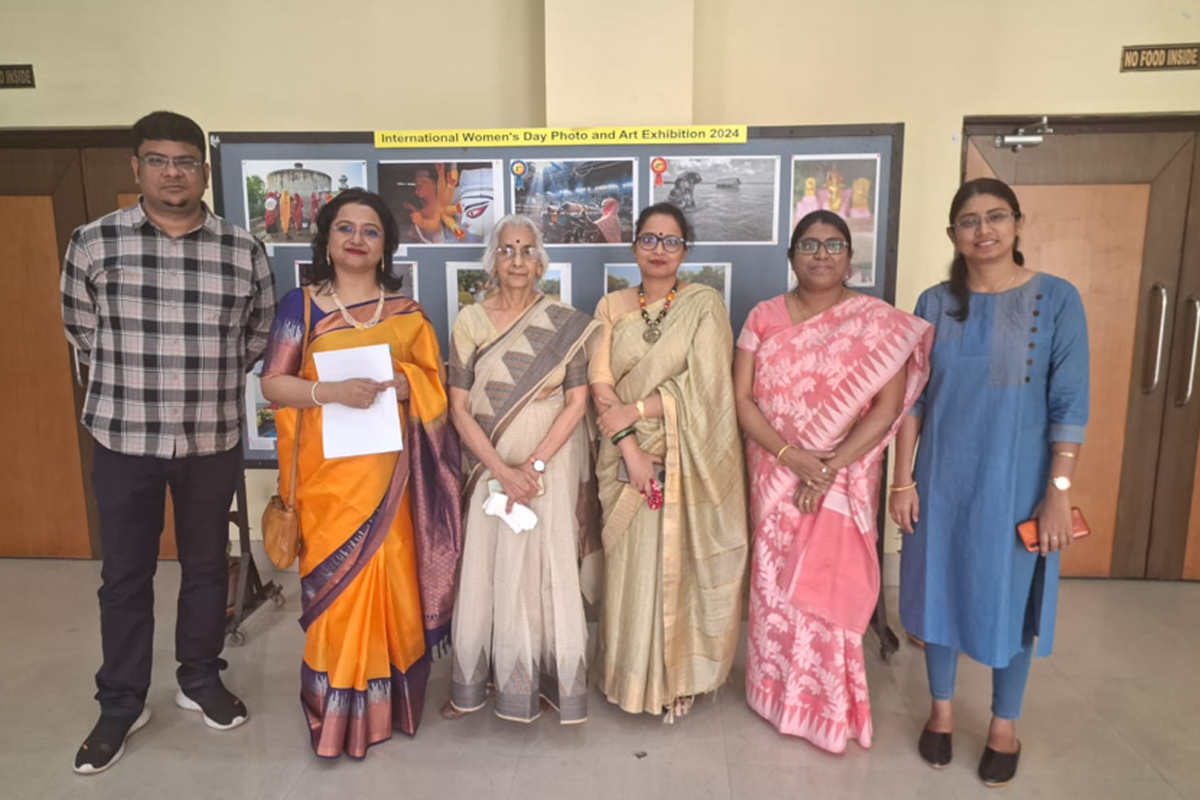ISI releases the schedule for admission process 2019-20 | Check more details here
The candidates can apply through the official website, isical.ac.in. The last date for applying online is March 19, 2019.
It was indeed an enjoyable celebration, with enthusiastic participation by students and faculty alike.

On 8 March, Indian Statistical Institute (ISI), one of the premier academic institutes in the country, celebrated International Women’s Day (IWD) 2024 in its platinum jubilee auditorium (PJA) at the Kolkata Campus. Under the directorship of Professor Sanghamitra Bandyopadhyay, ISI has been celebrating International Women’s Day on or around this date for many years now.
With an august gathering of academics and researchers, the keynote address was delivered by Professor Pushpa Misra, former President of the Indian Psychoanalytical Society and the former Principal of Bethune College, Kolkata. Her talk, “Women and Climate Crisis,” focused on her own fieldwork and research in two Himalayan areas: the northern foothills around Mussoorie and the eastern foothills around Kurseong.
The story that emerges from both regions is very similar: of mindless deforestation and misuse of natural resources inflicting irreversible damage on the fragile ecology of the Himalayas and imposing unending hardships on the local women. Mussoorie used to receive heavy rains, which are much less now, and there’s less snowfall too. Due to a rise in temperature, the Gangotri glacier is melting, and landslides occur very frequently. Bhuj or birch trees are slowly disappearing, referring back to the tragic Kedarnath disaster due to Chorabari lake flooding in 2013, wherein the death toll crossed 6,000 people.
Advertisement
This senseless course to ‘development’ has mainly been brought about by tourism, but at unthinkable costs! Hills have been blasted to create roads, and hotels have mushroomed. However, it has led to a Catch-22 situation. Agriculture has ceased to be profitable. It is now largely managed by women since men have moved towards cities and are engaged in professions that require less physical labour.
This was followed by a panel discussion on “Strategies for Inspiring Inclusion: From the Margin to the Mainstream” that went well with this year’s IWD theme, ‘Inspire Inclusion’.
Abhirup Sarkar, a renowned economist and former professor at ISI, spoke on “Financial Empowerment through Self-Help Groups” (SHG), which was based on a primary survey of some SHGs registered with Paschim Banga Gramin Bank. They conducted their survey in the villages of Bardhaman and Birbhum in West Bengal and found that eighty-four per cent of SHG members believed that their quality of life had improved after joining these groups.
Dr Manoshi Mitra Das, who was with the Asian Development Bank in Manila and has worked extensively in the gender and development sector, joined virtually from New Delhi and spoke on “Inspiring Inclusion: How do poor rural women inspire and get not just inclusion but equality?” She described her experiences about the intense struggle of landless tribal women (Santhal and Oraon) in Bankura, Purulia, and Medinipur in the 1980s, when she was a member of the ILO (International Labour Organisation) and had visited these parts for the first time in 1984. It was then that former leftist minister Benoy Choudhury and Dr Vina Mazumdar launched peasant camps for women at Mukutmanipur for rural women. .
The women who were initially silent gradually opened up and shared stories of generations of forced migration when their lands were forcefully grabbed by moneylenders, repeated exploitation by them, rape by contractors, etc. (so that doctors made fortunes from illegal abortions!). With assistance from Choudhury, they established Nari Bikash Sangha in 1986 for income generation through sericulture and certain agricultural sectors.
Dr Aparna Singh, a faculty member of Diamond Harbour Women’s University, spoke on “Dalit Women Authors: Voices from the Margins”. She talked about how a Dalit woman faces two levels of oppression: as a woman and as a Dalit. She particularly highlighted the complex intersection of caste and gender that sustains these systemic structures of exploitation.
Professor Swagatam Das, who is a professor at ISI, spoke on “Addressing gender bias and victimisation of women in generative AI models”. It delved into the pressing issue of gender bias and victimisation of women in generative AI models, particularly in deepfake and chatGPT technologies. Through examining current trends and case studies, he shed light on the ethical implications and potential societal harm caused by these biases while also exploring strategies for mitigating such biases and promoting gender equity in AI development.
An award ceremony for various contests that were organised as part of the IWD celebrations throughout the previous couple of weeks was held in the evening. One was a writing contest where essays, anecdotes, short stories, and poems were invited in English, Bengali, and Hindi on the theme “Left Out: Tales of Women’s Struggles for Inclusion” to remember and celebrate the struggles for inclusion of women around us—their silent resolve, their unwavering determination, their undaunted spirit. A photography contest titled “Count Her In: Celebrating Women’s Involvement Through Lens” was also organised. Also, there was an art contest titled “Whispers on Palette: Women through an Artist’s Eye.”
The celebrations concluded with a cultural programme that showcased the plight of women, from infanticide to derogatory remarks about one’s dark complexion, to stifling of women’s ambitions solely because of their gender through enactments, and excellent dance performances by ISI students from their Giridih centre.
It was indeed an enjoyable celebration, with enthusiastic participation by students and faculty alike.
The writer is associate professor, Economic Research Unit, Indian Statistical Institute, Kolkata.
Advertisement